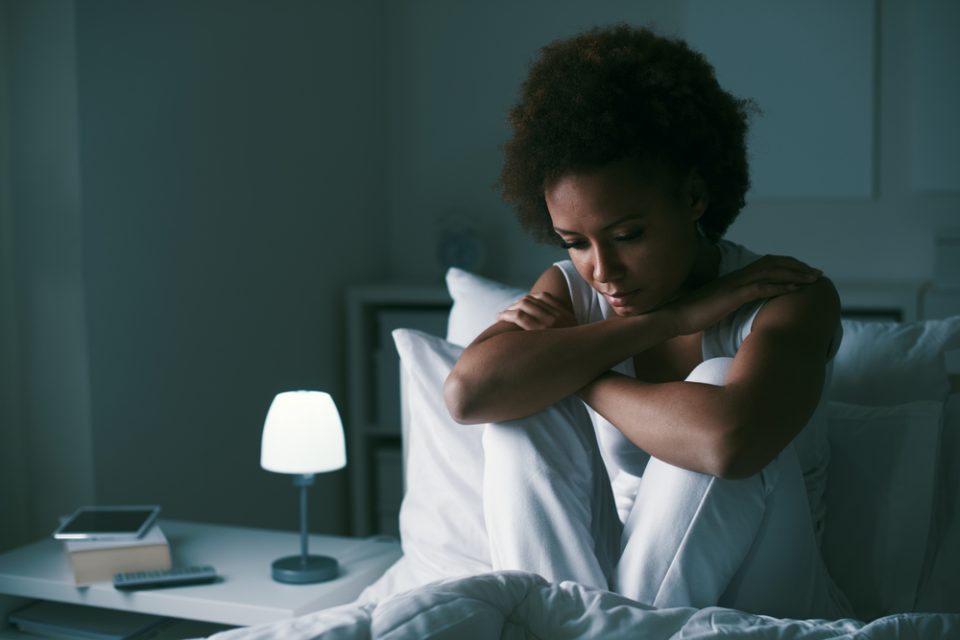
Depression is a silent intruder that can seep into your life without warning, affecting people of all backgrounds, including the Black community. Often, people associate depression with extreme sadness or persistent melancholy. However, the reality is far more complex, and recognizing its subtle signs can be challenging. Here are ten signs that you might be experiencing depression without even realizing it.
Persistent fatigue
Feeling tired occasionally is a normal part of life, but when exhaustion becomes your constant companion, it may be a sign of depression. Depression can sap your energy and make even simple tasks feel like monumental challenges. If you’re always tired, even after a whole night’s sleep, it’s time to consider whether depression could be the underlying cause.
Changes in appetite
Depression often has a profound impact on your eating habits. Some people with depression may lose their appetite and experience unintended weight loss, while others may turn to food for comfort and gain weight. If you notice significant changes in your eating patterns, it’s worth exploring whether your emotional state might contribute to these shifts.
Social withdrawal
Isolating yourself from friends and loved ones is common among those struggling with depression. You may find yourself canceling plans, avoiding social gatherings, or retreating into solitude without realizing the extent to which depression is driving this withdrawal. If you’ve noticed a decline in your social life, it might be time to examine whether underlying emotional struggles are at play.
Irritability and mood swings
Depression isn’t always characterized by overwhelming sadness; it can manifest as irritability, anger, or mood swings. If you find yourself snapping at loved ones or becoming easily agitated over minor issues, it could be a sign that depression is lurking beneath the surface.
Difficulty concentrating
Depression can impair your cognitive function, making it challenging to concentrate and make decisions. You might find you’re more forgetful, have trouble focusing on tasks at work or home, or struggle to complete routine activities. These cognitive difficulties can be subtle but impactful indicators of depression.
Loss of interest in hobbies and activities
One of the insidious ways depression takes hold is by robbing you of your passion for things you once enjoyed. If you’ve lost interest in hobbies, sports, or activities that used to please you, it may be a sign that depression has taken hold of your life.
Physical aches and pains
Depression isn’t limited to affecting your mood; it can also manifest as physical symptoms. Unexplained aches and pains, such as headaches, backaches, or stomach discomfort, occur daily in individuals battling depression. These physical symptoms often go unnoticed as potential signs of underlying emotional distress.
Sleep disturbances
Sleep and depression share a complex relationship. Some people with depression struggle with insomnia, finding it difficult to fall asleep or stay asleep throughout the night. Others may experience hypersomnia, sleeping excessively without feeling refreshed. Please pay attention to your sleep patterns, as they can offer valuable insights into your mental health.
Negative self-talk
Depression distorts your self-perception, leading to a constant barrage of negative thoughts and self-criticism. If you frequently engage in self-deprecating or self-doubting inner dialogue, it’s essential to recognize that these thoughts may indicate underlying depression.
Feelings of hopelessness
Perhaps the most significant sign of depression is overwhelming hopelessness or despair. You may feel like there’s no way out of your emotional state, and the future appears bleak and joyless. These feelings can be all-consuming and indicate that professional help should be sought.
Recognizing that you might be battling depression, even if you’re unaware, is a crucial first step toward healing and recovery. If you identify with several of the signs mentioned above, reaching out to a mental health professional who can provide guidance, support, and treatment options is essential.
Depression is not a sign of weakness; you don’t have to face it alone. Seeking help is a brave and necessary act of self-care. Various effective treatments, including therapy, medication, and lifestyle changes, can help you overcome depression and rediscover a sense of joy and purpose in your life.
Remember, you are not alone in this journey, and hope and support are available to guide you toward a brighter future.















